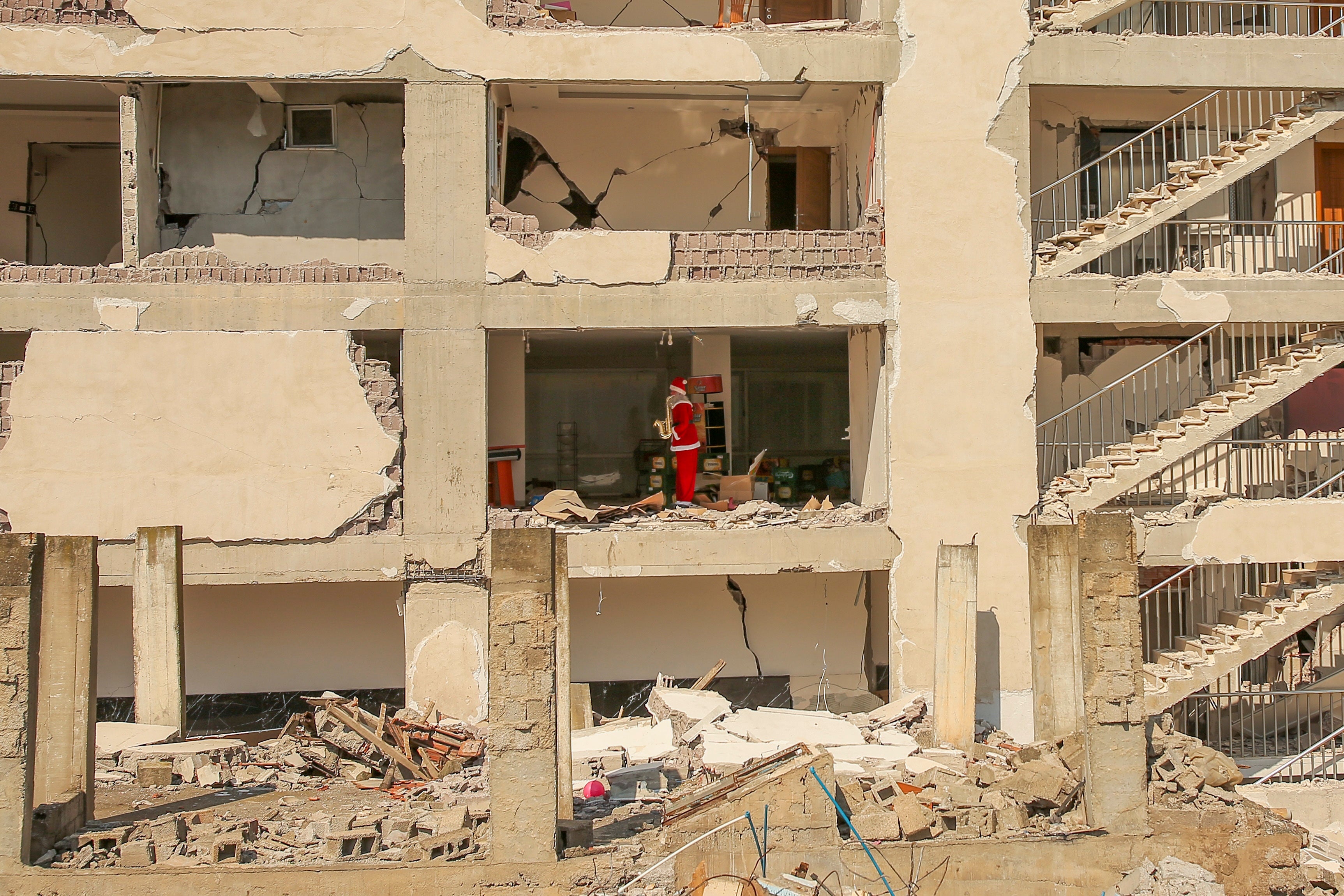Turkey launches investigation against more than 600 people over building collapses as toll exceeds 50,000
‘The detection of evidence in the buildings continues as a basis for criminal investigation’
Turkey is investigating 612 people over buildings that collapsed in the deadly 7.8 magnitude earthquake on 6 February that killed tens of thousands of people.
On Saturday, the country’s justice minister Bekir Bozdag announced that 184 out of 612 suspects, including property owners and contractors, have already been arrested.
Those in custody include construction contractors and building owners or managers, Mr Bozdag said in televised comments from a coordination centre in Diyarbakir in southeast Turkey.
“The detection of evidence in the buildings continues as a basis for criminal investigation,” he said.
As of Saturday, the death toll of the Turkey-Syria earthquake had crossed 50,000.
More than 160,000 buildings containing 520,000 apartments collapsed or were severely damaged by the disaster.
Experts have said many toppled structures were built with inferior materials and methods and often did not comply with government standards. Opposition parties have accused president Recep Tayyip Erdogan’s administration of failing to enforce building regulations.
The mayor of a town close to the epicentre of the earthquake was detained as part of an investigation into collapsed buildings, the Cumhuriyet newspaper and other outlets reported on Saturday.
The Turkish agency Disaster and Emergency Management Presidency (AFAD) said that 9,470 aftershocks had hit the region affected by the quake.
“This will continue for a long time ... we expect these aftershocks to last for at least two years,” AFAD general manager Orhan Tatar said in a media briefing in Ankara.
He said a 5.3 magnitude quake that hit Bor, a town around 245km (152 miles) west of the 6 February epicentre, was considered “independent” of earlier tremors.

Earlier this week, a magnitude 6.4 earthquake struck the Turkey-Syria border region, two weeks after deadly tremors devastated the area.
Turkey’s disaster management agency said the earthquake was centred on the town of Defne, in Hatay province, one of the regions hardest-hit by the earlier earthquakes.
NTV television said the quake caused some damaged buildings to collapse but there were no immediate reports of any casualties.
So far, nearly £100m has been raised by a UK charity following the earthquake in Turkey and Syria.
The Disasters Emergency Committee (DEC), a non-government organisation bringing together 15 UK charities, said donations had reached £98m since the 6 February quake that killed tens of thousands of people.
DEC groups and local partners have been providing food, water, shelter and warm clothing for children and families in both Turkey and Syria.
The organisation said the scale of the damage was “immense” and there would need to be a long-term rebuild project.
Join our commenting forum
Join thought-provoking conversations, follow other Independent readers and see their replies
Comments


Bookmark popover
Removed from bookmarks